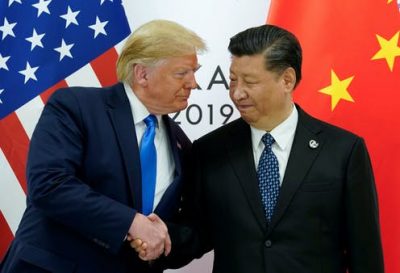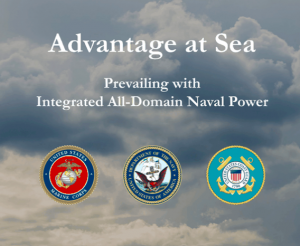Pentagon Report: “China Poses Greatest Threat to America”

In early December, Trump regime DNI John Ratcliffe defied reality saying:
“China poses the greatest threat to America today (sic), and the greatest threat to democracy and freedom world-wide since World War II (sic),” adding:
“Beijing intends to dominate the US and the rest of the planet economically, militarily and technologically (sic).”
A further litany of bald-faced Big Lies followed.
Whenever US officials criticize sovereign independent nations, managed news misinformation and disinformation propaganda follows.
Throughout the post-WW II period, no nations threatened US national security — not China, Russia, Iran, or any others.
Claims otherwise are false.
In response to Ratcliffe’s remarks, China’s US embassy called them “fact-distorting” rubbish, reflecting Cold War ideological prejudice, adding:
No nation more greatly warrants being called the “empire of hacking and spying” than hegemonic USA.
China’s Foreign Ministry accused Ratcliffe of repeating long ago debunked Big Lies.
The US wages permanent wars by hot and/or other means on all nations unwilling to subordinate their sovereign rights to a higher power in Washington.
A new Pentagon report titled “US Maritime Strategy: Advantage at Sea” called China and Russia the greatest threats to US naval power, with emphasis on the former, saying:
“We prioritize competition with China due to its growing economic and military strength, increasing aggressiveness (sic), and demonstrated intent to dominate its regional waters and remake the international order in its favor (sic).”
“China is the only rival with the combined economic and military potential to present a long-term, comprehensive challenge to the United States.”
“Naval Service operations and force posture will focus on countering PRC malign behavior (sic) globally and strengthening regional deterrence in the Indo-Pacific region.”
“Malign behavior” describes how the US operates domestically and on the world stage — not China, Russia, Iran, or other nations on its target list for regime change.
According to the Pentagon report, the US “must operate more assertively to prevail in day-to-day competition as we uphold the rules-based order (sic) and deter our competitors from pursuing armed aggression (sic).”
“If our rivals escalate into conflict, becoming our adversaries, we must control the seas to deny their objectives, defeat their forces, protect our homeland and defend our allies.”
The unacceptable above remarks suggest further escalation of US war by other means on China and other countries, risking direct confrontation.
It could be sparked in East Asia by what the Pentagon calls “freedom of navigation” operations.
They’re provocative US military drills near Chinese waters.
Imagine how the US and its Western partners would react if Chinese, Russian, or Iranian warships conducted military exercises in the Gulf of Mexico and/or off America’s east or west coasts.
Bipartisan hardliners in Washington and establishment media would likely call them provocatively assertive and aggressive, demanding they be countered.
The Pentagon report vowed greater US Indo/Pacific visibility, claiming its increased presence in a part of the world not its own will “detect…document, (and perhaps act to deter) our (regional rival).”
US warships in the region will “adopt a more assertive posture in our day-to-day operations” — heightening the risk of possible clashes that could escalate to war.
About 60% of US naval forces operate in the Indo-Pacific, the Pentagon report explained.
According to a South China Sea Probing Initiative (SCSPI) that tracks the Pentagon’s regional presence and movements, the US greatly increased its naval and aerial operations near China in the last decade.
It nearly doubled its aerial reconnaissance activities near Chinese sea and land borders — flying around 1,500 South China Sea sorties annually.
“According to (SCSPI monitoring), the US military significantly enhanced the frequency of activities in the region by boosting the presence of surface vessels by more than 60 percent (since 2009), reaching about 1,000 ship-days a year.”
Hostile US actions dangerously push the envelope toward eventual confrontation with China.
Irreconcilable differences define bilateral relations.
Strategic mistrust appears irreversible.
Neither country wants unthinkable war because of potentially catastrophic consequences.
Despite going all-out for peace and cooperative relations with the US and West, the risk of direct confrontation with China is dangerously real.
Increasing US hostility and distrust toward Beijing makes the unthinkable possible.
*
Note to readers: please click the share buttons below. Forward this article to your email lists. Crosspost on your blog site, internet forums. etc.
Award-winning author Stephen Lendman lives in Chicago. He can be reached at [email protected]. He is a Research Associate of the Centre for Research on Globalization (CRG)
His new book as editor and contributor is titled “Flashpoint in Ukraine: US Drive for Hegemony Risks WW III.”
http://www.claritypress.com/LendmanIII.html
Visit his blog site at sjlendman.blogspot.com.
Featured image is from InfoBrics


